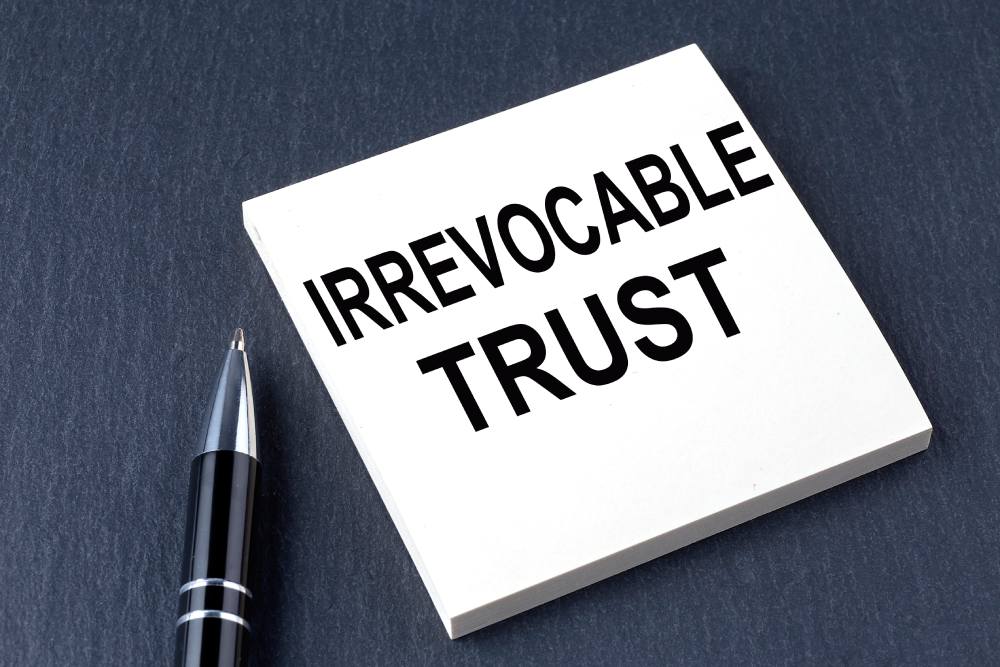An irrevocable trust is designed to last for a specific purpose, and it does not easily change once created. This type of trust can be a powerful tool for asset protection, estate planning, and minimizing taxes. However, like all trusts, it eventually ends.
Knowing when an irrevocable trust terminates is important for both the trustee and the beneficiaries. In this article, we will discuss the factors that influence the end of an irrevocable trust, as well as the differences between revocable and irrevocable trusts.
What is an Irrevocable Trust?
An irrevocable trust is a trust that, once established, cannot be altered, amended, or revoked without the consent of the beneficiaries or a court order. The assets placed in an irrevocable trust are removed from the settlor’s estate, providing protection from creditors and certain tax advantages. While the settlor loses control over the assets once the trust is funded, the trust offers significant benefits, such as asset protection and tax deductions.
This type of trust can be used for various purposes, including charitable giving, providing for family members, and shielding assets from creditors. Because the trust is designed to last and protect assets, it is important to understand when it comes to an end and the specific events that trigger its termination.
When Does an Irrevocable Trust End?
An irrevocable trust ends under a few specific conditions, often related to the completion of its purpose. Here are the common scenarios in which an irrevocable trust may terminate:
- Fulfillment of Trust’s Purpose: If the trust has been created for a particular purpose, such as providing for a beneficiary or funding a charity, it may end once that purpose is fulfilled. For example, if the trust is designed to provide funds for a beneficiary’s education, the trust may terminate once the education is completed or the funds are exhausted.
- Exhaustion of Assets: An irrevocable trust may also end when all the assets in the trust have been distributed or spent. If the trust was funded with a specific amount of money or property, and those assets are no longer available to manage, the trust no longer serves a function and can terminate.
- Termination by the Trustor: While an irrevocable trust is designed to be unchangeable, there are rare instances where the trustor (the person who creates the trust) can terminate the trust. This typically requires a court order and is usually only allowed under specific circumstances, such as if the termination aligns with the trust’s original intent and does not harm the beneficiaries.
- Expiration of a Specific Time Period: Some irrevocable trusts are set up with a specific termination date. For example, a trust may be created to last for a set number of years, or until a particular event happens. Once that period or event is completed, the trust ends.
- Death of the Beneficiary: If the irrevocable trust is designed to benefit a specific beneficiary, it may terminate upon that beneficiary’s death. The assets remaining in the trust will be distributed according to the terms laid out by the trustor, often to other family members, charities, or a new beneficiary.
- Termination by Court Order: A court can also order the termination of an irrevocable trust under certain circumstances, especially if it becomes impossible to fulfill the purpose of the trust or if the trust no longer serves the best interests of the beneficiaries. For example, if the trust becomes impractical or overly burdensome to maintain, a judge may decide to end the trust.
Differences Between Revocable and Irrevocable Trusts
While both revocable and irrevocable trusts serve similar purposes, they have significant differences when it comes to termination:
- Revocable Trust: A revocable trust can be altered or canceled by the settlor at any time during their lifetime. This flexibility allows the trustor to change the beneficiaries, modify the terms of the trust, or even dissolve the trust entirely. A revocable trust usually ends upon the death of the settlor, at which point the assets are transferred to the beneficiaries according to the terms of the trust.
- Irrevocable Trust: In contrast, an irrevocable trust cannot be changed or dissolved by the settlor once it is created. The only way to end an irrevocable trust is by fulfilling its purpose, exhausting its assets, or through court order, as discussed earlier. This lack of flexibility is a key feature of irrevocable trusts and is often why they are used for asset protection purposes.
Common Scenarios for Termination of Trusts
There are a few common scenarios in which trusts are created to serve a defined purpose and end once that purpose is fulfilled. Below are some of the most typical examples:
- Charitable Trusts: Charitable trusts are established to support a specific charity or cause. Once the assets are used for the intended charitable purposes, the trust may terminate. For example, if a trust is set up to donate a sum of money to a charity after the death of the settlor, the trust will likely terminate once that donation is made.
- Spousal Trusts: Some irrevocable trusts are designed to provide for a surviving spouse after the death of the settlor. These trusts may continue to exist until the death of the spouse or until all the assets are distributed. At that point, the trust will end, and the remaining assets will be transferred according to the terms of the trust.
- Generation-Skipping Trusts: These trusts are designed to benefit grandchildren or future generations, skipping the settlor’s children. Once the assets are passed to the next generation, the trust will often terminate.
What Happens When a Trust Terminates?
When a trust terminates, the remaining assets in the trust are typically distributed to the beneficiaries. In some cases, the trust may include provisions for the trustee to liquidate the assets and divide the proceeds among the beneficiaries. If the trust has a specific instruction to donate assets to a charity, the trust will follow that directive.
In the case of a trust with an asset protection purpose, such as a Nevada asset protection trust, once the trust terminates, the assets are often no longer protected, and the beneficiaries can fully access them. For trusts that provide ongoing asset management, the termination of the trust means that control and ownership of the assets are passed on to the beneficiaries.
Let Nevada Trust Company Guide You Through Trust Planning
At Nevada Trust Company, we specialize in creating customized trust solutions that help secure your financial future. If you are considering setting up an irrevocable or revocable trust, our team of experts can help you navigate the complexities of trust planning and asset protection. Explore options like a self-directed IRA or Nevada asset protection trust to safeguard your wealth. Contact us today for tailored guidance.



